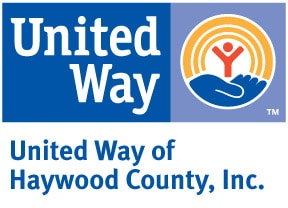- 828.246.0332
- Admin Hours: Mon - Fri: 10:00am - 4:00pm
Vicki Hyatt. (The Mountaineer, August 10, 2018)
Since its inception, the Haywood Pathways Center has required those spending their nights at the shelter to be gone during the day as they pursue the agreed upon goals to end their homelessness.
That changed this week thanks to Ray Escott, a peer support counselor who was hired to work the day shift at the center.
Now shelter residents can work with the experienced ordained minister who has spent most of his career helping those with a variety of challenges find employment. Because of his hours, the dining area at the center can remain open during the day.
In the past, residents were kept off the campus during the weekdays when they were expected to be searching for a job, volunteering or attending counseling sessions or classes.
Despite daytime support on campus, many residents will still be out in the community during the week. Forty percent have jobs and are working toward money so they can get settled into their own home.
Mandy Haithcox, the Pathways Center director, said there had been complaints from various businesses about loitering and people sleeping in public areas near the center.
“People assumed they are staying here,” she said. “Most aren’t. But we want to be good neighbors and the grant allows us to do that.”
Escott and three other counselors are being paid for through a $150,000 N.C. Opioid Action Plan grant. All will work directly with the Pathways Center, but two will have an ongoing caseload within the Haywood County Detention Center.
Prisoners with lower level offenses who have addiction problems will be targeted to work with counselors while they are still in jail. That means they will have a plan immediately upon release from jail, said Haithcox.
The plan could include rehab treatment, stable housing or the shelter, along with a career path. Currently, goal plans are crafted within the first three days of people coming to the homeless shelter.
So far, Escott is the only hire, but Haithcox hopes to have the others in place by early September. The peer support specialists will help their clients work through addiction problems through counseling or referrals to other programs in the community, as well as helping them find a way to earn a living.
“A lot of people say addiction is an illness that needs to be managed,” Haithcox said. “It has to do with brain development and is more than a choice.”
By offering a safe, supported place to stay, the basic necessity of life issues become secondary as the client focuses on forging a new path forward, she added.
The top four reasons for homelessness are an addiction, a dual diagnosis for addiction and mental illness, being unemployed and being released from incarceration, said Haithcox, noting these four categories accounted for 65 percent of the cases.
Measuring success is relatively easy for both the Pathways Center and Haywood County Sheriff Greg Christopher, who helped start the shelter that’s located within a stone’s throw of the jail.
That’s because it is easy to track who keeps coming back, something that often happens as people work through addiction issues.
Haithcox was delighted with the latest jail statistics on recidivism that Christopher shared recently showing that those released from jail who came to the Pathways center were far less apt to land back in jail.
That’s a contrast to the days before the center opened when lower-level offenders were locked in a cycle of being in and out of jail.
Christopher said he is excited to have professional counselors working with inmates before their release. Currently, there is an active jail ministry, but having the support that can link inmates directly to community resources upon their release will make a huge difference, he said.
“I truly believe this is a very positive thing that will help the individuals, the taxpayers, and the community,” he said.
The center maintains a relatively steady population of 85 individuals a month, and lately, the women’s dorm has been staying full, a departure from earlier years.
Those who work pay $25 a week or 10 percent of their income to offset center costs. Other operational expenses are covered through donations and grants.
At present, the center only provides housing for adults, but by October, a dorm for moms and kids will be opened on the campus. This will help fill a needed void in the community to address the 400 or so homeless children living in Haywood.
The new facility will provide housing for 10 mothers and their families for up to six months.
Sharing is Caring!
Mandy Haithcox,
Executive Director
179 Hemlock Street
Waynesville NC 28786
mandy@haywoodpathways.org
828-246-0332

